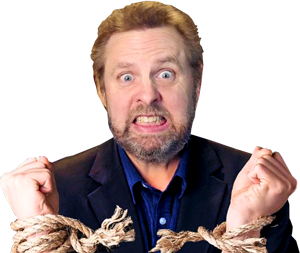
You won’t believe what the ultra-outspoken atheist Richard Dawkins is saying about Christianity!
– The New Atheist Movement, led by figures like Dawkins, Hitchens, and Harris, is criticized for its intellectual and moral shortcomings compared to Nietzsche’s atheism.
– Dawkins celebrates the decline of Christian faith while lamenting the loss of Christian culture in Britain.
– Christianity’s preeminence in Europe is reshaping secular norms and placing it back in the public square.
Highly outspoken atheist Richard Dawkins has been considered one of the leading voices of the so-called New Atheist Movement, which, despite its marketing successes with a number of best-seller books and fawning media coverage, represented a notoriously underwhelming and incoherent atheism. The new atheists fell way short of the hard-hitting moral atheism of Friedrich Nietzsche for example, like we find in his work Thus Spake Zarathustra.
Dawkins along with Christopher Hitchens and Sam Harris represented an embarrassingly inept atheism. Their arguments were intellectually and morally lazy and were shockingly unexceptional. This is surprising especially in light of what someone like Nietzsche put forward over a century ago. What made Nietzsche’s atheism so profound is that he recognized the historical unprecedented revolutionary power of the Christian gospel in a way that these New Atheists didn’t.
Richard Dawkins, renowned atheist, now embraces being a cultural Christian and he says the West must be preserved. pic.twitter.com/un5DqJMSnn
— Ian Miles Cheong (@stillgray) April 1, 2024
Richard Dawkins admitted how much he feels at home within a Christian cultural ethos. Dawkins celebrates the loss of Christian faith in Britain while simultaneously laments the loss of Christian culture. He tried to justify the hard distinction between being a believing Christian and being a cultural Christian. There is clearly a conceptual distinction between the two, one can be a believer without actually participating in or building a distinctively Christian culture. This unfortunately characterizes so much of evangelical and Catholic Christianity in America today.
Dawkins wants a Christian culture without a “Christian cult.” The term cult comes from the Latin cultus which simply means worship. It doesn’t necessarily refer to the two people knocking at your front door wanting you to join some fringe religious group. That’s a modern-day usage of the term cult. Dawkins’ absurdity comes to the fore when we realize that he openly celebrates the loss of the Christian cult. He’s glad to see that Christian faith is waning in Britain while lamenting the loss of Christian culture in Britain. The religious faith that he is worried about replacing Christian culture in Europe is the one that refuses to make the distinction he insists on.
Richard Dawkins, renowned atheist, now embraces being a cultural Christian and he says the West must be preserved. pic.twitter.com/un5DqJMSnn
— Ian Miles Cheong (@stillgray) April 1, 2024
Dawkins appears rather oblivious as to why Islam is making such cultural headway throughout the continent of Europe. The fact that Islamic culture is manifesting itself in Europe through the erection of minarets and mosques is evidence that the hard distinction that Dawkins insists upon between cult and culture does not exist among Muslims. Herein lies the key as to whether Christian civilization in Europe can still be saved. How do we rescue that connection between cult and culture even as faith appears to be waning among Europe’s indigenous population?
Scholars have noted that rescue is already happening. The Christian religion is actually making a huge comeback in Britain and Europe as a whole, and not just in terms of personal piety. Christianity is playing a significant role in the politics of some of the most secular and secularized nations in all of Europe. Nations like France, the Netherlands, and Hungary all have seen the rise of successful populist movements and parties that have drawn on the power of the Christian religion to define national and civilizational culture and identity.
In France for example, Marine Le Pen of National Rally openly declares and celebrates France as a Christian nation and openly decries Islam as incompatible with French values. Europe is seeing the rise of what scholars call Christian civilizationalism, which is not necessarily connected with religious belief and practice but is connected with religious identity. Religious identity is more about defining the boundaries of civilization for Europeans, and it’s an identity that is growing more hostile to religions such as Islam.
All throughout Europe, Christianity is rising to a political and cultural preeminence not seen in nearly a century. This reemergence is considered by more people as essential for the recovery of a distinctively European culture and politics. More politicians and civic leaders are openly declaring that Christianity is the defining characteristic of Western civilization and only a robust defense of Christian culture is going to preserve that civilization from extinction. That preeminence, even in the most secularized parts of Europe, is once again placing Christianity in the middle of the public square. That Christian chorus is ironically now redefining secularism and secular norms in light of the preeminence of Christianity rather than the other way around.
Copyright, 2024. TurleyTalks.com



















